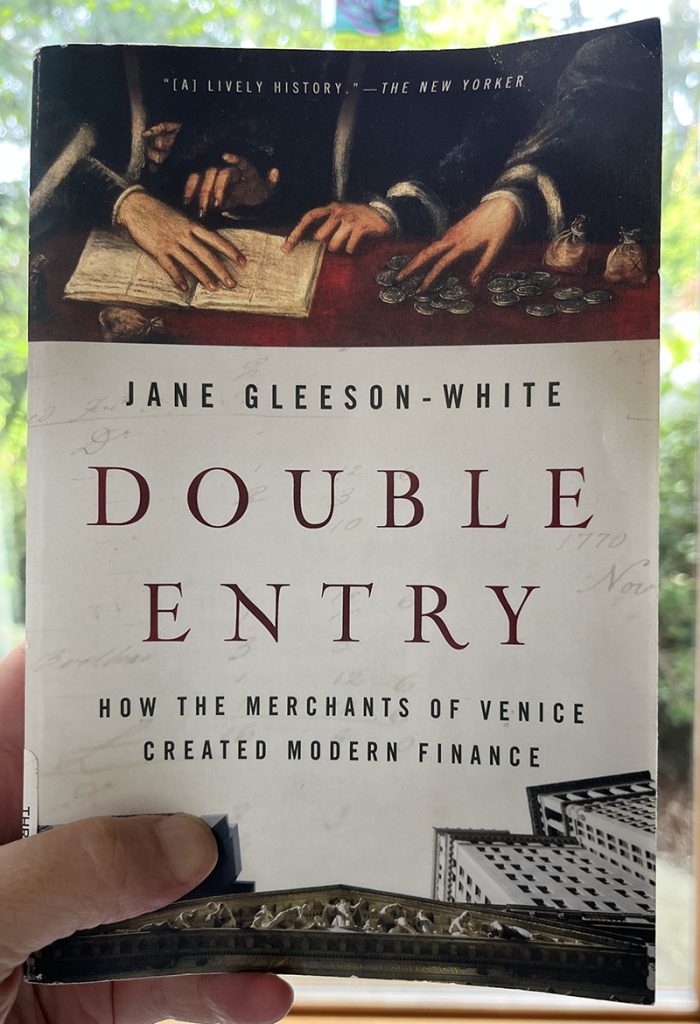Who invented double entry accounting? The ubiquitous system of general ledgers, income statements, balance sheets, and cashflow statements found throughout businesses and quite a lot of households?
This is yet-another of those concept so taken for granted that they seem to have been around “forever”, but thanks to Double Entry: How the Merchants of Venice Created Modern Finance by Jane Gleeson-White, the answer is Venice in the 15th Century. Not only does the book explain when, it explains how this novel form of accounting became popular, thanks predominantly to one Tuscan-born man, Luca Pacioli, who learned accounting in Venice and then spent the rest of his life teaching the techniques to others.
The idea of documenting every business transaction in a ledger (i.e. bookkeeping) and categorizing those transactions in a chart of accounts (i.e. accounting) are ideas so commonplace 400 years later that it is difficult to imagine a world where businesses don’t use those tools. But that is the world where Pacioli lived, and all of civilization for thousands of years before alla vinizania, the Venetian method became commonplace. A process that took hundreds of years to spread across Europe.
Why Venice in the 15th Century? Because before then, Europeans were still using Roman numerals, and there is no simple way to do arithmetic with Roman numerals on paper. Leonardo of Pisa (a.k.a. Fibbonacci) published the first book in Europe touting the “Arabic numbers” in 1201 and it took more than 300 years for that better number system to spread across Europe, and only did with accounting as its “killer app“.
Half of the book covers all of that history. The second half dives into a shallow history of the history of the shareholder corporation, auditing, accounting standards, and the rise of GDP as a flawed standard measure of economic development. Twice the book quotes from Bobby Kennedy and the flaws of GDP.
As economic histories go, I found the first half of the book quite interesting, as that was all new to me. The book is worth a read just for that half.















